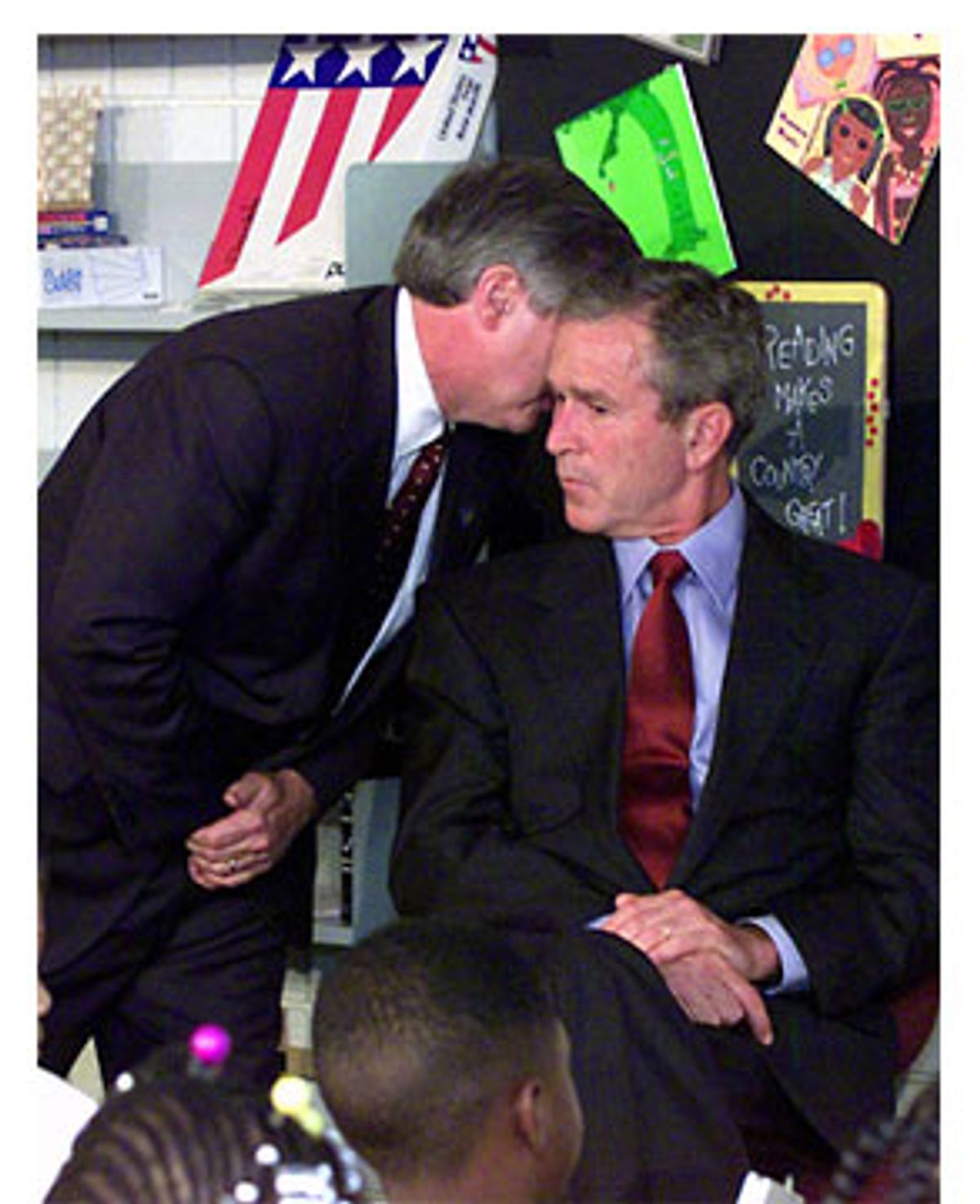Suppose that in March or April 1941, 14 Americans with lengthy backgrounds in national security affairs had reported to President Franklin Roosevelt that the United States was going to be attacked somewhere, sometime, somehow by the Japanese, that this attack would result in large numbers of American casualties, and these officially appointed Americans had strongly recommended to the Roosevelt administration that it take urgent steps to help prevent such an attack. Further suppose that Roosevelt had done little if anything in response to this warning, and that almost eight months later, as it happened, the Japanese attacked American facilities at Pearl Harbor, and almost 2,000 Americans died. Suppose after this attack official inquiries were launched, as it also happened, as to why there was a failure of intelligence, what actions were or were not taken based on what intelligence there was, and what could be done to prevent such catastrophic surprises in the future. And finally suppose that the official commission created to investigate the tragedy of Pearl Harbor failed to call upon the original 14 Americans who forecast the attack and forewarned against it.
Now move this supposed scenario forward to 2004 and you have virtually a perfect fit and an actual set of circumstances. The U.S. Commission on National Security/21st Century, co-chaired by former Sen. Warren Rudman and myself, reported to President George W. Bush and his new administration in January 2001 that terrorists were surely going to attack the United States and that our country was woefully unprepared. We documented the lack of intelligence coordination against this threat and the lack of preparation of up to two dozen federal agencies, as well as state and local governments, to prevent such attacks or respond to them when they did occur. Though we had no ability to forecast specific times, places and methods for such attacks, we were united in our certainty that they were bound to occur. In our first report we said: "America will become increasingly vulnerable to hostile attack on our homeland [and] Americans will likely die on American soil, possibly in large numbers." In our final report we urged the new Bush administration to create a national homeland security agency to prevent terrorist attacks.
Now that the National Commission on Terrorist Attacks Upon the United States -- the so-called 9/11 commission -- is moving toward completion of its deliberations and preparation of its final report, I am increasingly asked what information our earlier commission, the U.S. Commission on National Security/21st Century, has provided the 9/11 commission and why that information has not been made public. When told that the 9/11 commission has not asked for any public testimony from us, most people are incredulous. If the 9/11 commission is really trying to find out what was known and when it was known, they ask, why would your national security commission's warnings and recommendations not be of direct relevance and urgent interest? Didn't you publicly and privately warn the new Bush administration of your concerns about terrorism? Didn't you specifically recommend a new national homeland security agency? Why wouldn't all this be of central importance to the work of the 9/11 commission? The simple answer to all these questions is: I don't know why we have not been asked to testify.
Since the U.S. Commission on National Security officially ceased to exist as of the summer of 2001, I cannot speak for the other 13 commissioners. But I have been waiting for many months to hear from the 9/11 commission, fully expecting a request for public testimony from members of our earlier commission, and have heard nothing.
To my knowledge, few if any members of the media have asked the 9/11 commission these questions either. Why would a commission investigating the events leading up to 9/11 not want to know what an earlier commission learned about potential terrorist attacks and what recommendations it gave to the new administration? This would seem to any reasonable person to be of intense interest to the press and the public the media serves. Apparently not. Apparently the politics of whether National Security Advisor Condoleezza Rice will testify under oath and the drama of personal assaults on chief terrorism advisor Richard Clarke exhaust media attention. It is difficult to know, or to understand, why this is so.
In this connection it is important to note that the U.S. Commission on National Security based its conclusions about the inevitability of terrorist attacks in part on testimony from Clarke, and fully briefed Rice and other senior Bush administration officials regarding the urgency of its conclusions.
Sixty years after Pearl Harbor, books are still being written about whether the Roosevelt administration had any warnings of potential Japanese attacks. There certainly was no U.S. Commission on National Security in 1941 to issue such warnings. Only lonely Billy Mitchell, prophet of aerial warfare, some 18 years before. Now the 9/11 commission has the great burden of creating as complete a public record as possible of all the events leading up to the 9/11 attacks for the rest of history, to try to lay to rest theories of conspiracy and behind-the-scenes manipulation and maneuver, and to exhaustively examine all relevant information.
This cannot be done until the U.S. Commission on National Security/21st Century is officially and publicly heard from.



Shares